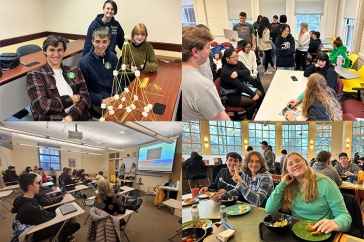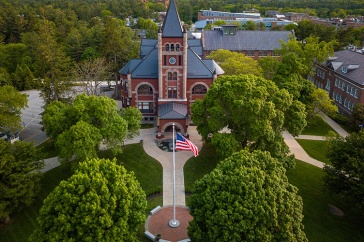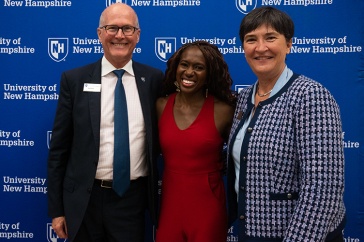For most religions, coming together as a community to worship is at the core of their practice, but during this unique and unsettling time of mask wearing and social distancing praying together can be a challenge as many churches remain closed during the coronavirus pandemic. Michele Dillon, a scholar of Catholicism and professor of sociology at the University of New Hampshire, finds that during one of the most holy periods on the Christian calendar, when more people typically attend mass and liturgical services, clergy and parishioners are learning to make the liturgy work as online events, while continuing to follow COVID-19 guidelines.
“Faith can be an important source of both spiritual meaning and social support for a lot of people and during this stressful time many people may be looking for strength and comfort in prayer,” says Dillon. “Whether someone observes Easter, or Passover, or another religious holiday finding ways to allow people to participate virtually, like streaming services or offering online prayer sharing group activities over Zoom, can help them feel connected and strengthen the bonds of a shared faith.”
Dillon points out that while services can be televised or streamlined online, what is missing virtually is the tactile nature of worship that comes from physical face-to-face devotion. With churches closed, Catholics, for example, also can’t receive Holy Communion (a wafer which is the spiritual embodiment of Christ’s presence). Even the long-standing tradition of a priest or volunteer bringing Holy Communion to those who are sick or home bound is not feasible in the current COVID-19 situation.
“Even though mass attendance has dropped off over the past decades for many American Catholics, several surveys have found that a majority of them still feel the need to be nourished by the sacraments and Holy Communion,” says Dillon. “The coronavirus presents challenges for many parishioners during this Holy Week, and even beyond, but most churches and synagogues are learning to adapt so that, though physically apart, believers can still come together to offer comfort and celebrate what traditionally is a joyful event of hope and salvation.”
Dillon specializes in religion and culture and has written extensively on Catholicism in the United States, and elsewhere, and has been especially interested in the institutional and cultural processes that enable Catholics who selectively disagree with aspects of Catholic teaching to remain loyal to Catholicism. She is the author of “Postsecular Catholicism: Relevance and Renewal,” "American Catholics in Transition” and "Catholic Identity: Balancing Reason, Faith, and Power.”
-
Written By:
Robbin Ray ’82 | UNH Marketing | robbin.ray@unh.edu | 603-862-4864



















































